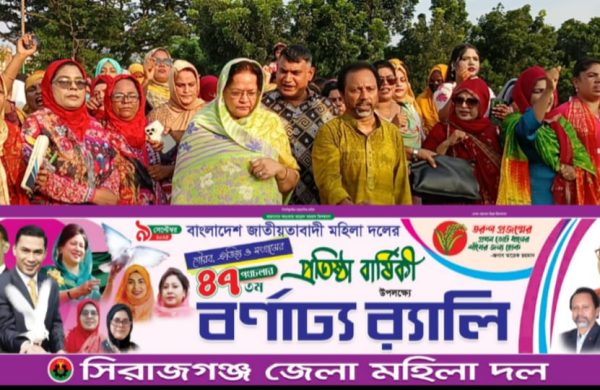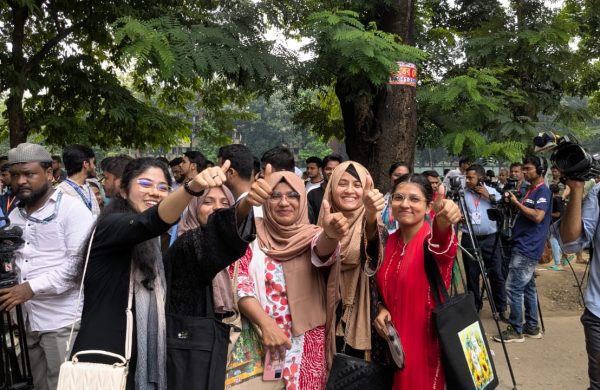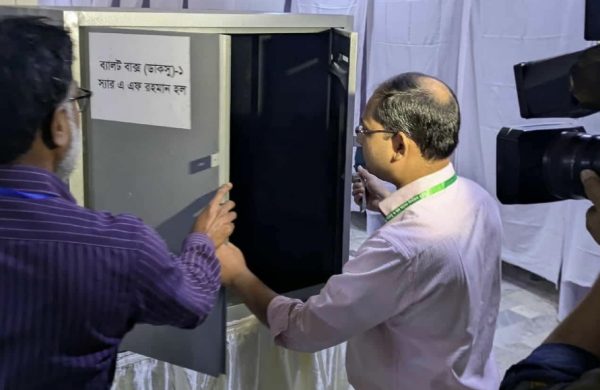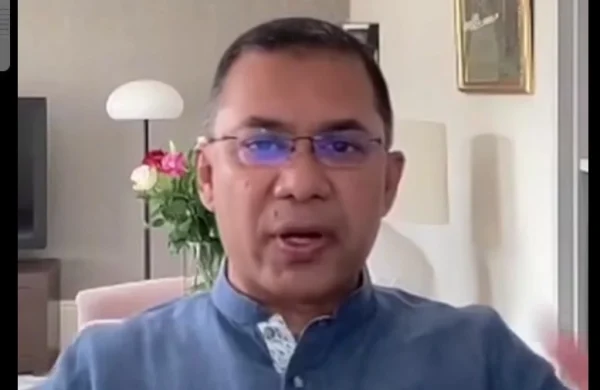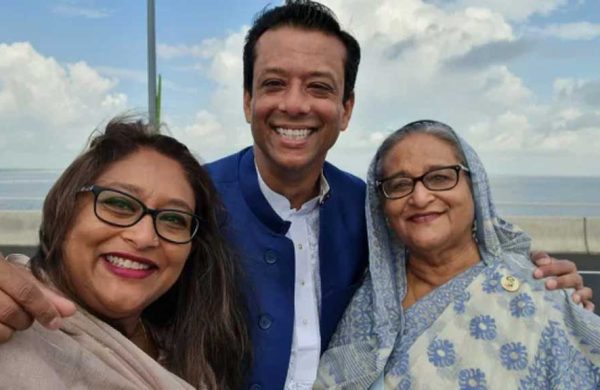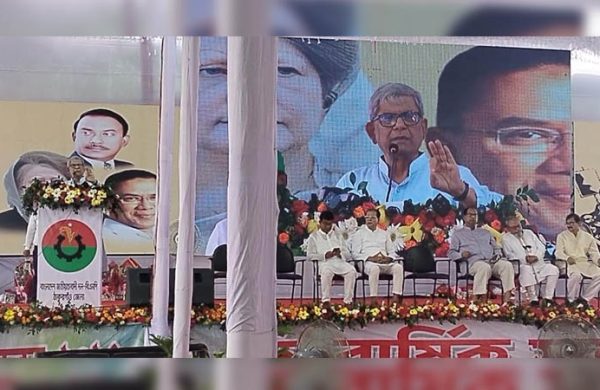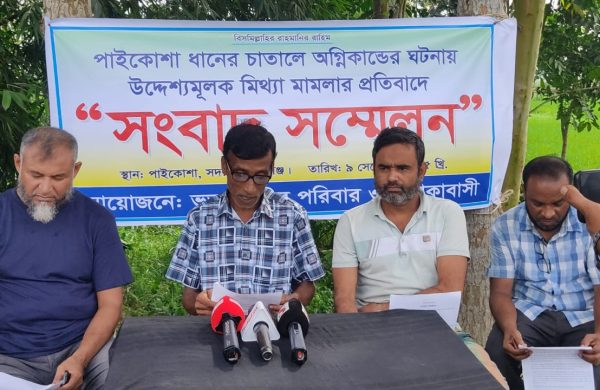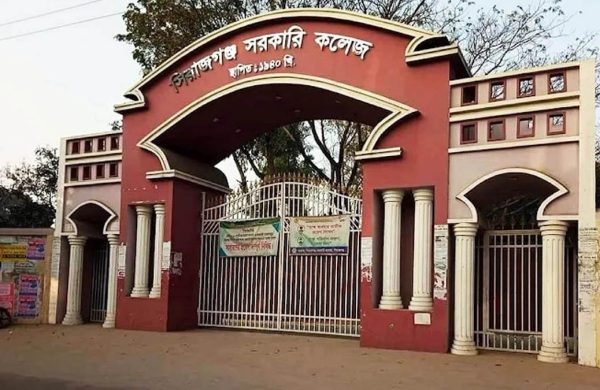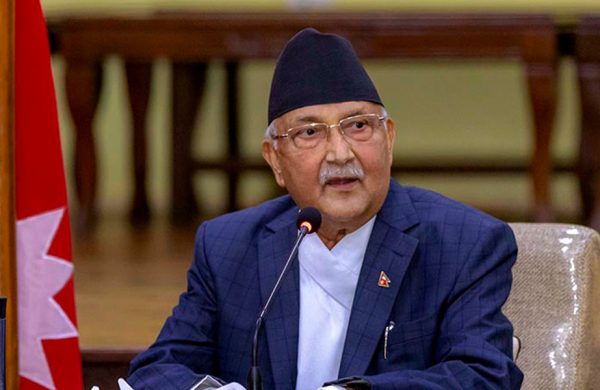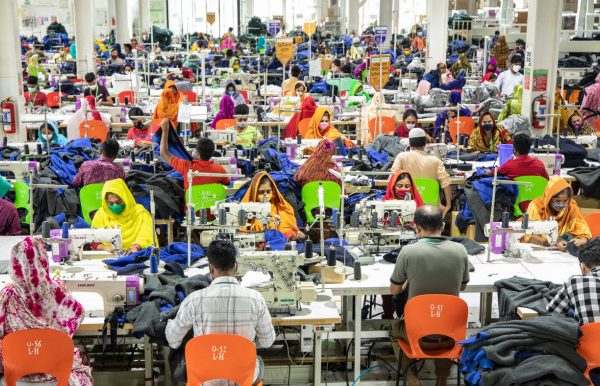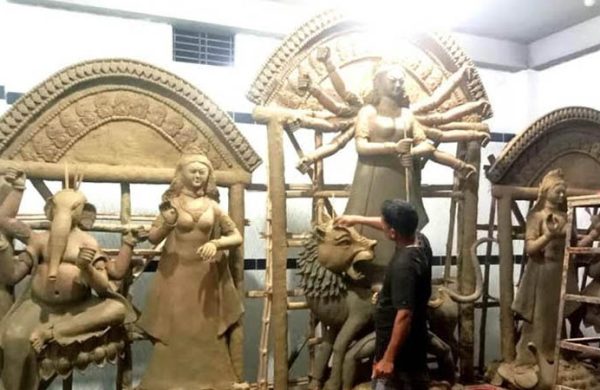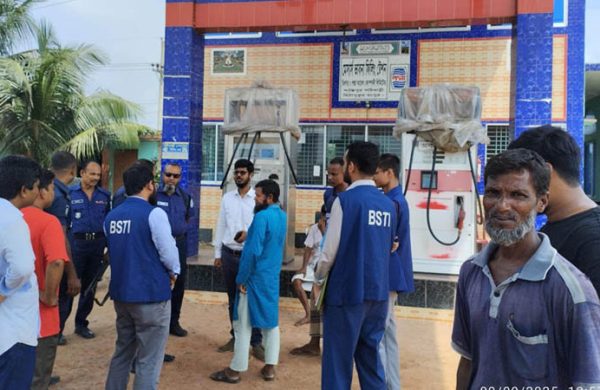5 coordinators’ arrest turned me blue with grief: Fakhrul slams extortion case
- Update Time : Monday, July 28, 2025
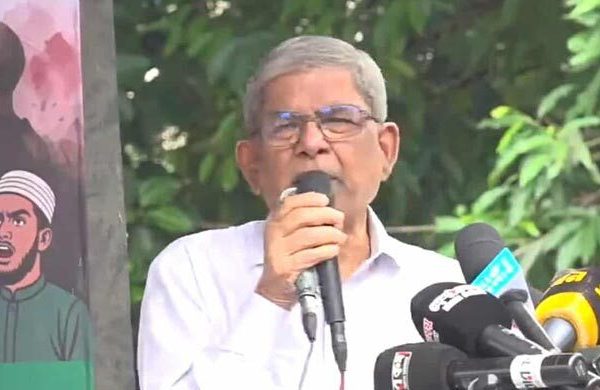
Staff Correspondent:
BNP Secretary General Mirza Fakhrul Islam Alamgirexpressed deep anguish over the arrest of five coordinators of the platform that led July Uprising allegedly involved in extorting Tk 50 lakh from a former Member of Parliament, saying the news left him “turned blue with grief.”
He made the remarks while speaking at the inauguration of a graffiti drawing programme organised by the Jatiyatabadi Juba Dal in front of the National Museum in Shahbagh, Dhaka, on Monday, July 28.
Fakhrul said he was shocked upon reading the newspaper that morning.
“When I opened the paper on Monday I turned blue with grief,” he said. “I saw that five coordinators had been arrested for allegedly forcing a former MP to hand over Tk 50 lakh from his home. What kind of outcome is this? Is this what we fought for? Did the people of this country want this? If such incidents are happening so soon, within less than a year, what does our future hold?”
He criticised the interim government’s reform narrative, accusing it of deflecting blame onto political parties.
“The current government talks about reforms every moment,” Fakhrul said. “They indirectly blame political parties, claiming we are not cooperating. But their words are misleading. If this path of confrontation and internal conflict continues, the country may move backward instead of forward.”
Fakhrul also raised concerns over the treatment of political leaders, particularly BNP Chairperson Khaleda Zia, whom he claimed was sent to an “abandoned prison” on a “false case.”
“Khaleda Zia has sacrificed her entire life for democracy in Bangladesh,” he said. “Yet no one speaks about her suffering. We must bring her back into national discourse.”
He recalled the brutal crackdown on BNP leaders and activists last July, during the anti-discrimination student movement.
“Our leaders and activists have been killed, tortured, disappeared, and oppressed across the country,” he said. “Last July, leaders from all our affiliated organisations were arrested and taken to the Detective Branch (DB) office, where they were brutally tortured – even senior leaders. But not a single one surrendered. Not one gave a bond that day.”
Fakhrul emphasised that the mass uprising was not limited to a few groups or youth.
“It wasn’t just a few boys or a few organisations,” he said. “People from five-year-old children to 90-year-olds took to the streets to rise against the fascist rule of Sheikh Hasina.”


